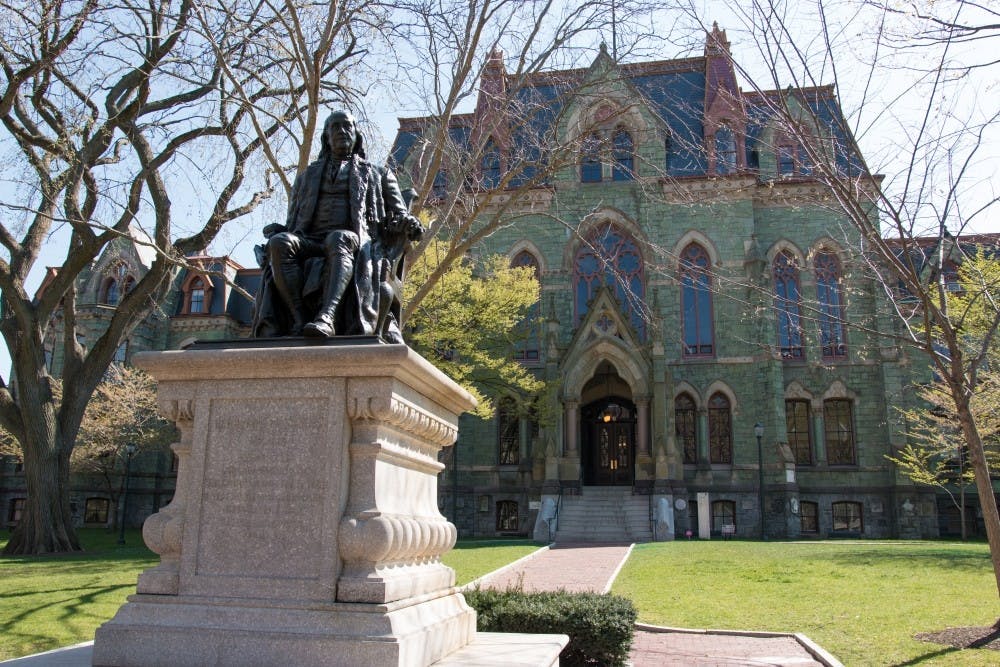
Penn filed a joint "amicus" brief earlier today, opposing President Donald Trump's executive order on immigration.
Filed in conjunction with 16 other colleges and universities, the legal document argues that Trump's temporary ban on immigrants from seven majority-Muslim countries threatens the schools' "ability to welcome international students, faculty, and scholars into their communities." It was filed in the United States District Court in the Eastern District of New York.
Penn President Amy Gutmann only recently broke her public silence on Trump, a 1968 Wharton graduate, when she condemned the travel ban in a statement read aloud on College Green. She also signed a letter condemning the ban with 47 other university presidents.
The brief contends that each university relies upon the talents of foreign students and faculty and that the enrollment of international students and faculty benefits the nation as a whole.
In the introduction, Penn states that its "roots are in Philadelphia, the birthplace of American democracy. But Penn’s reach spans the globe … Penn research and teaching encourage lifelong learning relevant to a changing global society.”
The document also notes that Penn enrolled more than 4,800 international students during the Fall 2016 semester and that they made up 13 percent of the incoming freshman class.
The brief added that currently, 1.3 percent of Penn's full time faculty are "non-resident aliens" and three undergraduate students and two admitted students are from the nations affected by the ban."Amici, however, believe that safety and security concerns can be addressed in a manner that is consistent with the values America has always stood for, including the free flow of ideas and people across borders and the welcoming of immigrants to our universities," the brief reads.
"We believe that the perspective of universities is an important one to be heard in this debate," University spokesperson Stephen MacCarthy said in an emailed statement. "The free flow of information and scholarship are core to what universities do, and blanket restrictions on individuals from certain countries harm our ability to promote the dissemination of knowledge, to hear all perspectives on critical issues, and to train leaders for the future."
In addition to all eight Ivy League schools, the co-signatories of the document include Carnegie Mellon University, the University of Chicago, Duke University, Emory University, Johns Hopkins University, Massachusetts Institute of Technology, Northwestern University, Stanford University and Vanderbilt University.
The Daily Pennsylvanian is an independent, student-run newspaper. Please consider making a donation to support the coverage that shapes the University. Your generosity ensures a future of strong journalism at Penn.
Donate







